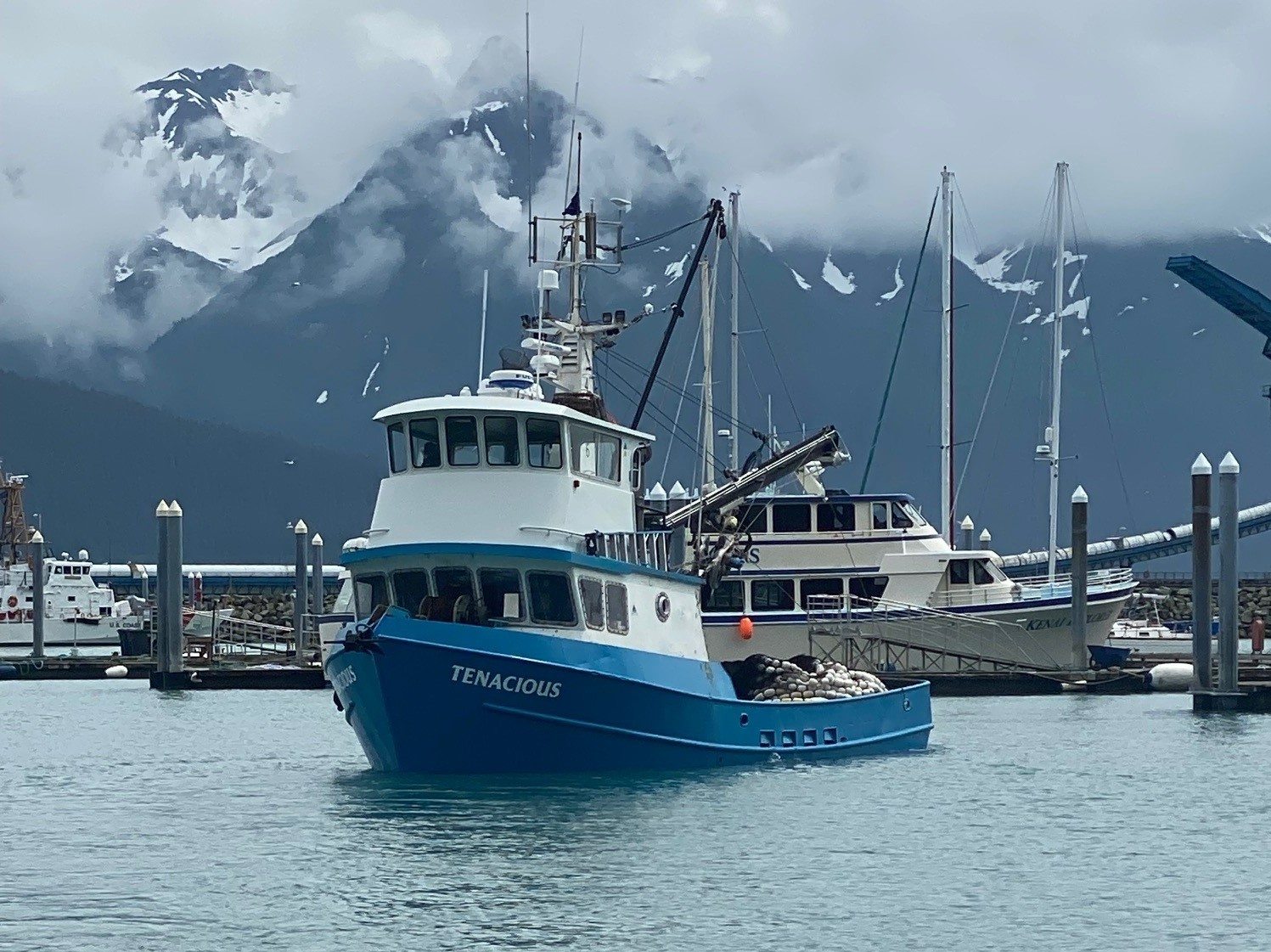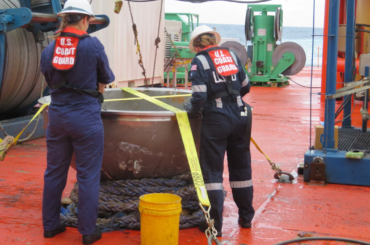The National Transportation Safety Board (NTSB) revealed in a Marine Investigation Report released Tuesday that a captain’s decision to get underway when fatigued caused to the grounding and sinking of a fishing vessel near Whittier, Alaska.
While transiting to fishing grounds in Prince William Sound on July 24, 2021, the fishing vessel Tenacious grounded near the entrance of Wells Passage. The five members of the crew were rescued after abandoning the ship. After a while, the Tenacious sank. There was only one minor injury. The vessel and fishing gear were lost for a total of $660,000, and the 2,000 gallons of diesel fuel on board were never recovered.
The Tenacious crew arrived late on July 22 in Whittier to address maintenance issues with their skiff ahead of the fishery’s opening on July 24. Three members of the crew traveled to Seward, Alaska, for a 4-hour round journey to borrow another skiff. The entire crew, according to a deckhand, was running on “not too much sleep.” The Tenacious hit rocks about two hours after departing for the July 24 fishing. The captain admitted to investigators that he had dozed off. The vessel began to fill with water, and attempts to control the flooding were futile. The crew stepped onto the skiff and was rescued by Wildlife, a fishing vessel.
“Even though captains face economic pressures, operating vessels while fatigued can be dangerous,” said Morgan Turrell, director of NTSB’s Office of Marine Safety. “The crew of Tenacious was fortunate no one was injured; others have not been so fortunate. Owners/operators should ensure crewmembers receive enough rest to adequately perform duties.”
NTSB found there were two tools that could have prevented the grounding:
- Tenacious was outfitted with a chart plotter, which was not in use, that included a cross track error alarm. It would have visually and audibly alerted the wheelhouse operator when the vessel departed a set distance off its planned track; and
- The bridge watch alarm, also not in use, sets intervals to ensure the operator has not fallen asleep. This could have alerted the captain in time to possibly prevent the grounding.
Furthermore, regulations did not require the Tenacious to have watertight bulkheads; however, if the bulkhead between the bunkroom and the engine room had been waterproof, the flooding would have been controlled.
Source: marinelink.com







